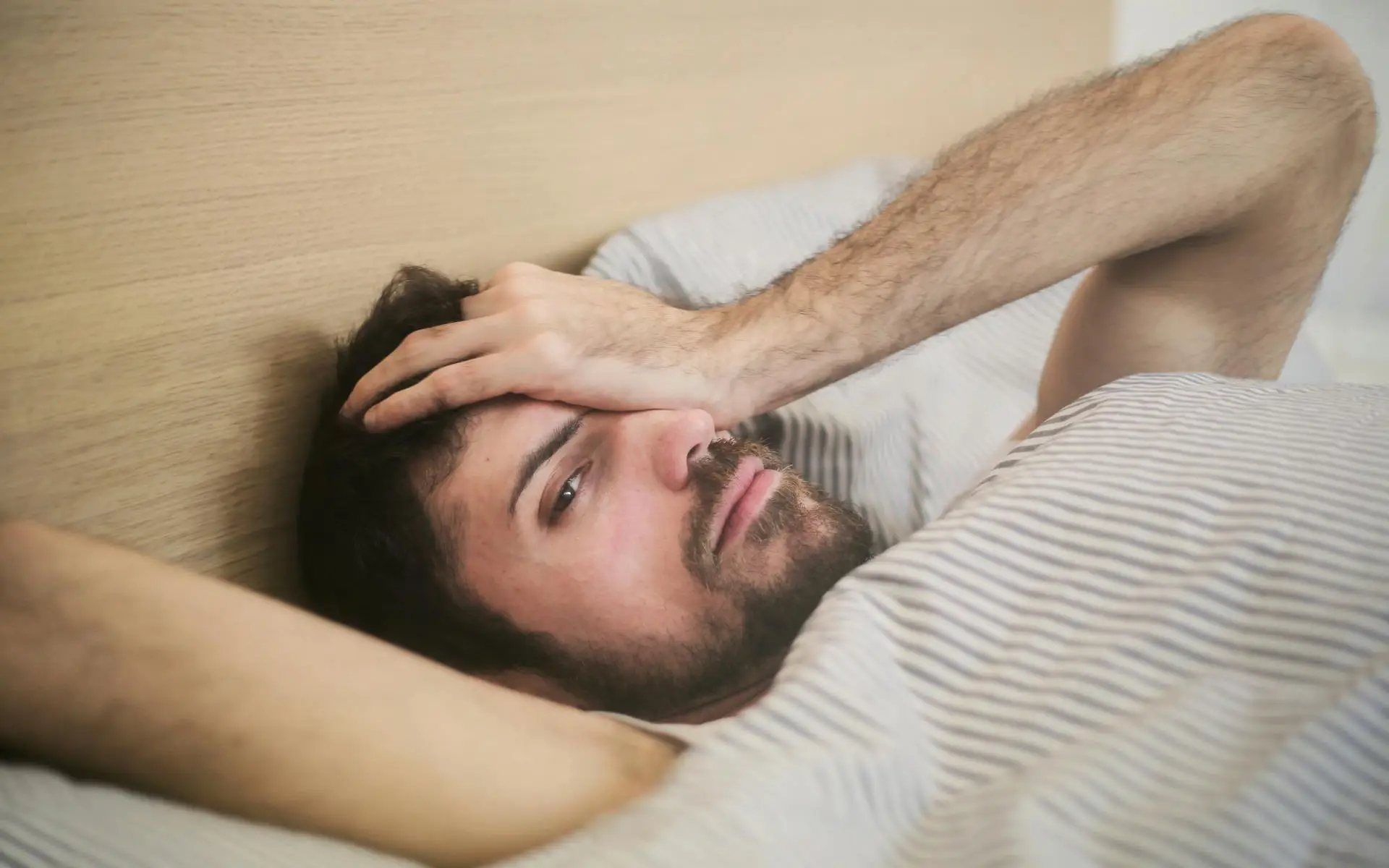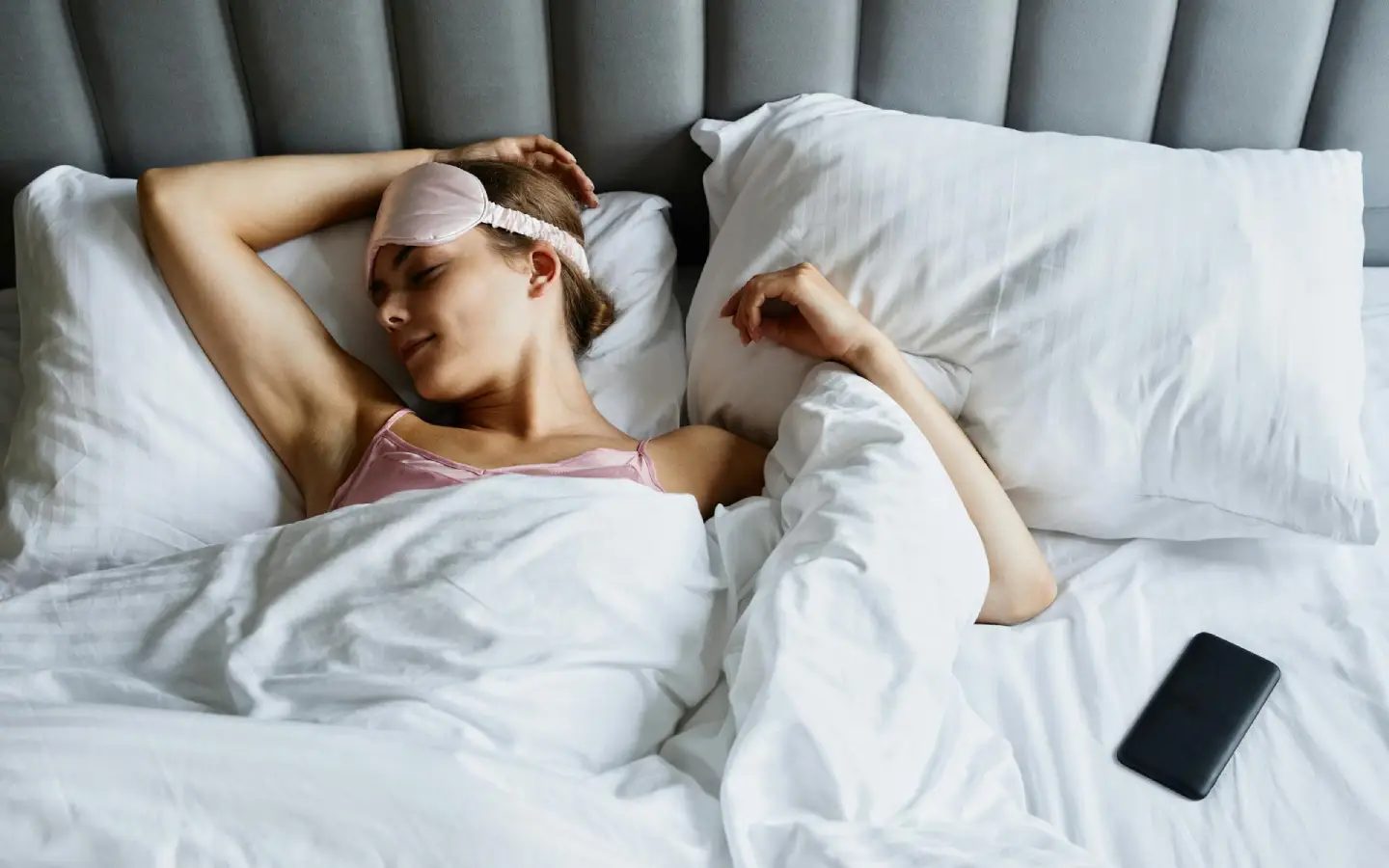October 17, 2025
What It Means To Be a Heavy Sleeper and How to Wake Up Easier
If you are someone who can sleep through alarms, conversations, or your partner trying to wake you, you’ve probably been told you’re a heavy sleeper.
To someone who is not familiar with what it means to be a heavy sleeper, this can sound like a funny quirk, or even a great trait to have. But, for heavy sleepers this often becomes something that affects their mornings, their work, or even their confidence.
Before we start talking about what heavy sleeping is, it’s good to know what it isn’t.
Heavy sleeping isn’t laziness. It’s a reflection of how someone moves through the stages of sleep. Some people simply stay in deep sleep longer and respond less to outside noise or movement that would wake someone else.
Let’s look at why heavy sleeping happens, what it means for your sleep quality in the long run, and how to make your mornings easier again.
What It Means to Be a Heavy Sleeper
When we sleep, we cycle through different stages of sleep, from light to deep and then into REM. During deep sleep, brain waves slow down, breathing steadies, and muscles fully relax. This is the stage where most of the physical recovery happens.
A heavy sleeper is someone whose brain naturally spends more time in deep sleep or has a higher resistance to external stimuli such as noise or even an alarm clock. Scientists call this having a high arousal threshold, which means you need stronger signals (like bright light or direct touch) in order to wake up.
Being a heavy sleeper is not a problem by itself.
In fact, it can be a sign that your body knows how to rest well. But when it causes you to oversleep or wake up feeling groggy and disoriented, it’s a sign that your sleep rhythm might need support.

Why Am I Such a Deep Sleeper?
Sleep depth isn’t something you can control with sheer will or motivation. It’s decided for you by a mix of factors that influence how the brain protects the integrity of sleep.
Brain activity and sleep spindles
During deep sleep, your brain produces short bursts of electrical activity called sleep spindles. They help block out unimportant sounds, like traffic or distant conversations, so you can stay asleep. Some people produce more of them, which makes them naturally heavier sleepers compared to others.
Genetics
Sleep depth often runs in families. Some people are wired to reach deep sleep faster or stay there longer.
Sleep disorders
Conditions like sleep apnea can interrupt normal breathing during sleep. That causes repeated brief awakenings, even if you don’t remember them. The brain then compensates by demanding more deep sleep later in the night.
Lifestyle and aging
People who move less during the day or who experience high levels of mental fatigue tend to fall into deeper sleep at night. It’s the brain’s way of restoring balance.
Sleep deprivation and irregular schedule
If you’ve been sleeping too little, your body will use the next opportunity to dive into deep sleep faster. It’s a built-in recovery mechanism.
Medications and substances
Certain medications and substances can change how your brain moves through sleep stages. Sedatives and some antihistamines may make you fall asleep faster and enter deep sleep sooner, but they often disrupt the natural rhythm of the night.
Alcohol has a similar effect, and it can deepen sleep early on, then cause lighter, more fragmented sleep later. Caffeine taken too late in the day does the opposite by delaying deep sleep altogether, leaving you less rested and more groggy the next morning.
Is Being a Heavy Sleeper Bad For My Health
Being a heavy sleeper is usually not a bad thing on its own. After all, deep sleep is essential for recovery and immune function. It becomes a problem when you start having episodes of waking up feeling tired, disoriented, or unable to wake up even after what should be enough rest.
When that happens, it often means your sleep stages aren’t well balanced. You might be getting too much deep sleep and not enough REM, or your sleep is being fragmented by stress, late-night stimulants, or poor timing.
Heavy sleeping can also make you more prone to sleep inertia, also known as morning grogginess. If it lasts longer than a few minutes, it’s a sign your sleep cycles are being interrupted at the wrong stage.
Why You Still Wake Up Tired
Waking up tired after a long night of sleep can feel frustrating to say the least, but it usually comes down to timing, or when you wake up that makes the difference.
Let’s say you are currently sleeping, and you are in deep sleep. If your alarm were to go off right now, your brain would need extra time to reach full alertness compared to when you wake up without an alarm. It’s not that you didn’t get enough sleep, but that you woke up at the wrong point in the sleep cycle.
If you tend to sleep through alarms, it’s likely that your sleep structure leans heavily toward deep stages, or your nervous system is staying too “switched off” overnight.
[CTA_INSERT]
How To Stop Being a Heavy Sleeper and Wake Up Easier
If you’re a heavy sleeper, mornings can feel like a battle between your alarm and your brain. But the goal here isn’t to sleep less deeply, but to help your body move smoothly through all sleep stages so you wake closer to a lighter phase.
Start by improving your sleep hygiene and the small habits that lead into sleep. Keep your bedtime and wake-up time consistent, even on weekends. When you wake at the same time every day, your body starts preparing to wake before the alarm.
Keep your bedroom cool, dark, and quiet to help your body reach deeper stages of sleep. If your window faces streetlights or early daylight, a sleep mask can block unwanted light and prevent early awakenings.
In the morning, though, light becomes your ally. Let natural light in as soon as you wake. It signals your brain to stop producing melatonin and helps you feel alert faster. If your room doesn’t get much sunlight, consider sleeping in a brighter room or opening curtains before bed so you can wake up with the sun.
If you struggle with alarms, try ones that use gradual light or gentle vibration instead of a single loud sound. Sunrise-style alarms slowly brighten to mimic morning light, helping your body wake more naturally.
To reduce morning grogginess, avoid caffeine, alcohol, or heavy meals close to bedtime. These interfere with deep and REM sleep balance. Regular exercise also improves sleep efficiency and helps your body move through each stage more smoothly.

How Kimba Helps Heavy Sleepers and Those Who Wants To Sleep Better Overall
Heavy sleepers often say they sleep so deeply that they can’t wake up without feeling slow or foggy afterwards. One of the main reasons why this happens is because the body stays too long in deep sleep or doesn’t transition smoothly between stages. Kimba is designed to help balance those stages and support more restorative, consistent sleep.
Kimba is the first personal limbic therapy system that listens and responds to your body in real time. It combines neuroscience, scent therapy, and biometric data to help your nervous system stay in the calm, restorative state where true recovery happens.
Here’s how it works.
Kimba connects to your wearable and reads signals such as heart rate, HRV, movement, and restlessness. These small changes reveal when your nervous system is starting to shift into stress or instability. When that happens, Kimba responds instantly with a short pulse of calming scent.
Each scent blend is formulated to engage the limbic system, the part of the brain that manages emotion, stress, and safety. Because scent travels directly to the limbic system, it can influence your emotional state without the need for conscious effort. This helps your body stay relaxed, maintain steady sleep cycles, and return to deeper sleep more easily after small disruptions.
For heavy sleepers, this means fewer abrupt awakenings from the deepest stage and a clearer, easier rise in the morning. For light sleepers, it means fewer disturbances through the night. In both cases, the goal is the same: steady, balanced sleep that feels natural.
With Kimba, your body learns to rest, recover, and wake the way it was meant to.
Want to improve your sleep quality and recovery at the same time?
👉 Join our waitlist and get early access to Kimba!


Continue reading

Shift Work Sleep Disorder and How To Fix Poor Sleep Quality



